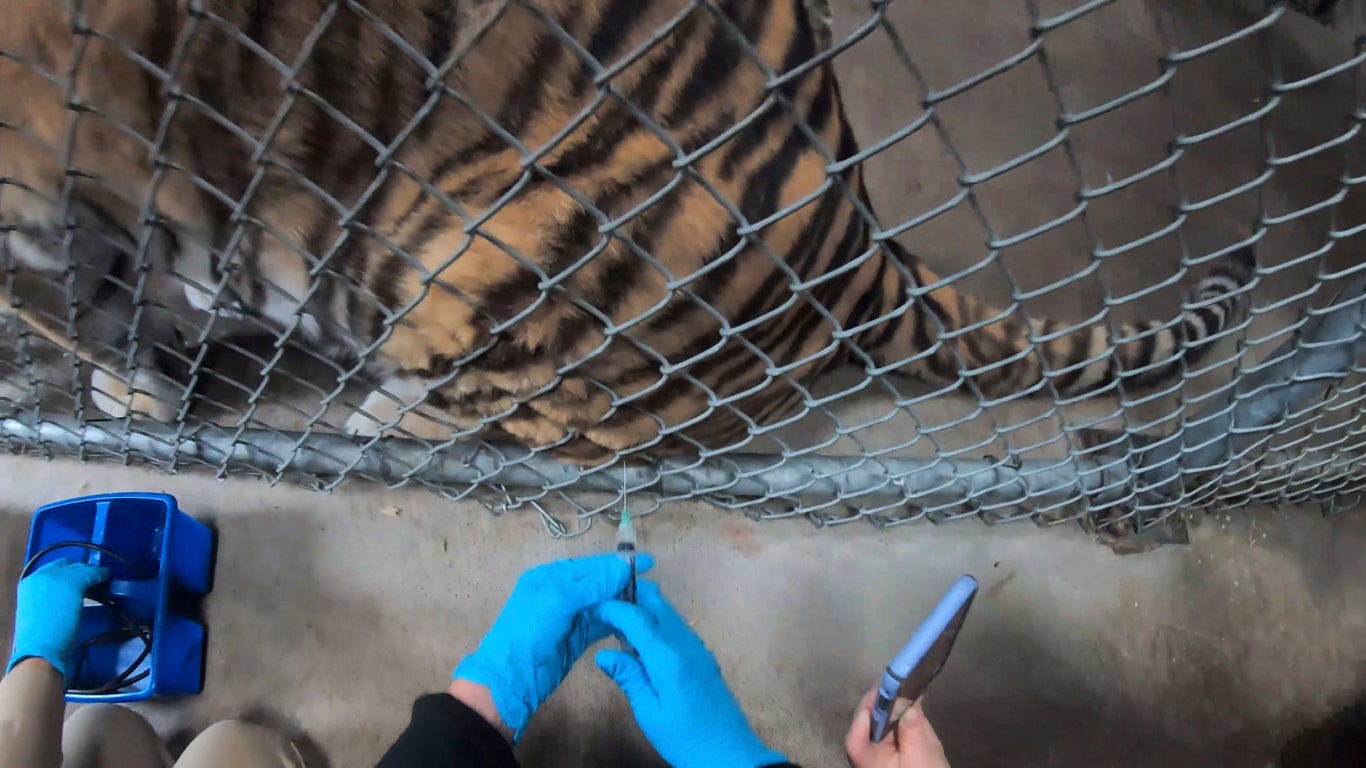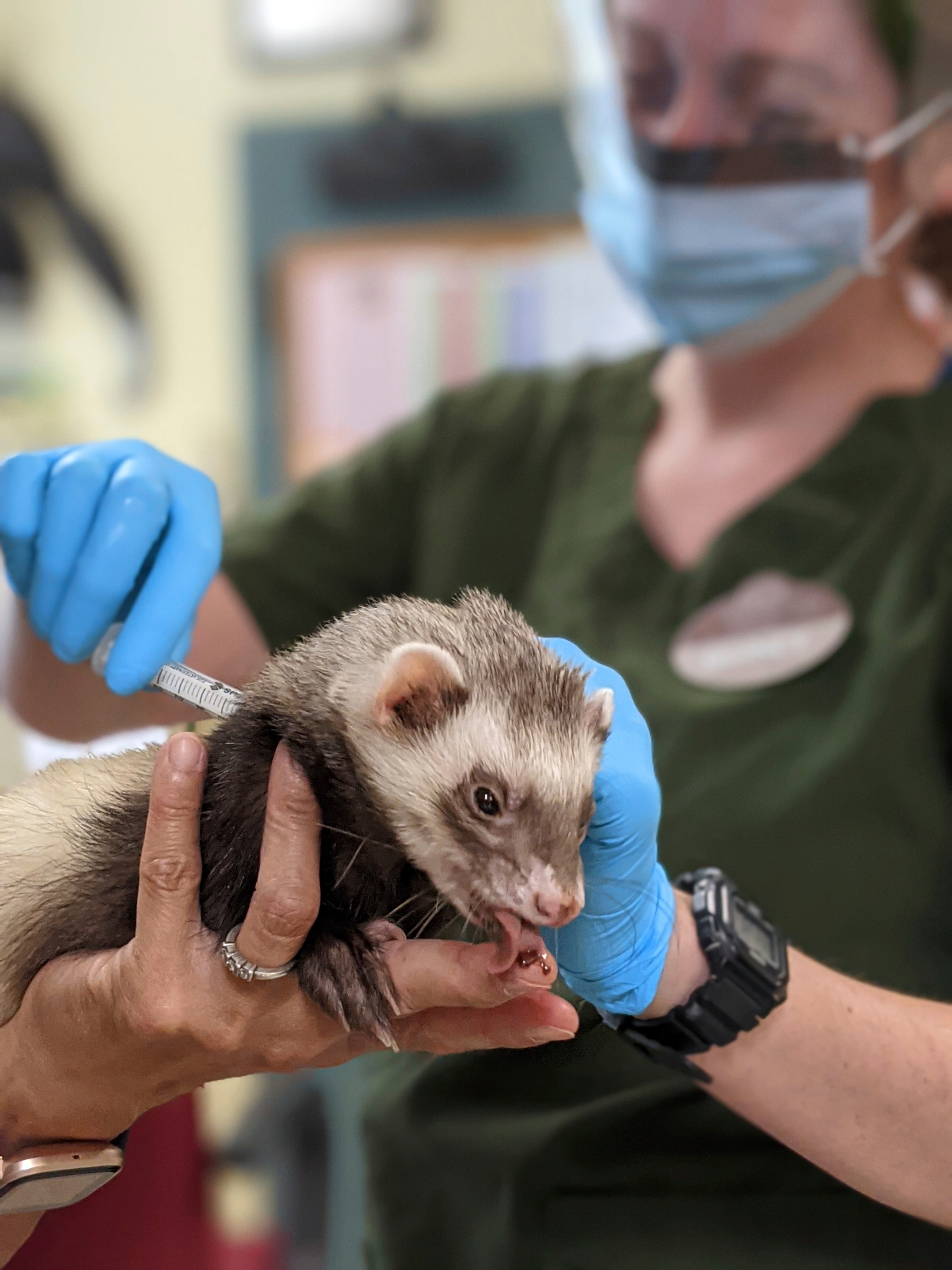Oakland and Denver zoos among first to start vaccinating animals against coronavirus
11,000 jabs designed for animals gifted to zoos

Your support helps us to tell the story
From reproductive rights to climate change to Big Tech, The Independent is on the ground when the story is developing. Whether it's investigating the financials of Elon Musk's pro-Trump PAC or producing our latest documentary, 'The A Word', which shines a light on the American women fighting for reproductive rights, we know how important it is to parse out the facts from the messaging.
At such a critical moment in US history, we need reporters on the ground. Your donation allows us to keep sending journalists to speak to both sides of the story.
The Independent is trusted by Americans across the entire political spectrum. And unlike many other quality news outlets, we choose not to lock Americans out of our reporting and analysis with paywalls. We believe quality journalism should be available to everyone, paid for by those who can afford it.
Your support makes all the difference.Zoos in the US’s Oakland and Denver states have started vaccinating animals against Covid-19 this week, with bears, mountain lions, tigers and ferrets becoming the first set among hundreds of animals getting inoculated this summer.
The zoo inhabitants are receiving two doses of an experimental vaccine designed for animals with a gap of three weeks and continuous monitoring of the animals taking place to ensure they are normal, said a statement by the Oakland zoo.
Zoetis, the veterinary pharmaceutical company that developed the vaccine, has donated more than 11,000 jabs to 70 zoos and wildlife sanctuaries across 27 US states for their experimental vaccination drive, the statement said. The effort has been authorised by the US Department of Agriculture.
Two elderly tigers, three mountain lions and two grizzly bears were among the first set of mammals to receive the jabs at the Oakland zoo, Dr Alex Herman, vice president of veterinary services at Oakland zoo, said.
There were no Covid-19 cases detected in the animals in both zoos, but vaccinations began on 30 June as a safety measure.

The staff at the zoo has been wearing protective gear and using barriers to socially distance themselves from vulnerable species, according to the statement.
Erin Harrison, a spokeswoman for the zoo, said the animals are “doing great post-vaccine” after the vaccine. She said the zoo has received enough vaccines to inoculate 50 animals.
Covid cases in animals kept in zoos have, however, been confirmed across the world, even though cases of virus transmission in animals is rare.
At least seven animals tested positive at New York’s Bronx zoo, while there were instances of lions contracting the infection and even dying from it in India, according to news channel CNN.
Eight Asiatic lions got Covid-19 at Nehru Zoological Park in India’s Hyderabad city and at least two lions succumbed to the infection at Vandalur zoo in India’s Tamil Nadu state.
In March, several apes were given an experimental shot of the Zoetis vaccine after an outbreak among gorillas at the San Diego zoo. Eight gorillas in the zoo became the first primates in the world to test positive in January this year, according to the BBC. They, however, recovered after receiving care.
“We’re concerned about the animals’ overall populations and long-term survival on the planet,” Scott Larsen, head veterinarian at the Denver zoo, said. “There’s been concern about wild populations of these animals, some of the last on earth, and what may happen when the virus gets into these animals. We’re just trying to do the best we can.”
Join our commenting forum
Join thought-provoking conversations, follow other Independent readers and see their replies
Comments